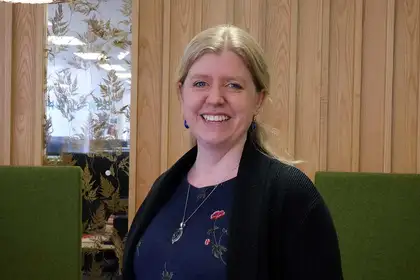
The first JCDR secondment working part-time with EQC on important projects is Dr Emma-Hudson Doyle.
The Joint Centre for Disaster Research (JCDR) has developed a new partnership with the Earthquake Commission (EQC) to drive collaboration, coordination and alignment in disaster research.
The partnership will focus on three areas:
- Interdisciplinary research into effective disaster risk reduction
- Enabling effective use of products and tools for risk reduction
- Strengthening the links between research and policy/practice.
JCDR Director Professor David Johnston says, “The partnership will enhance the contribution of risk communication and social sciences to improving disaster risk management in the future.”
A key part of the partnership includes a JCDR secondment working part-time with EQC on important projects. The first of these is Dr Emma Hudson-Doyle, Senior Lecturer at JCDR and an Executive Committee member of the Science Communicators Association of NZ (SCANZ).
Dr Hudson-Doyle is a specialist in science and risk communication, with a particular focus on the communication of uncertainty. Her interests lie at the interface between physical science and critical decision makers, and the effective communication of science advice, forecasts and warnings before, during, and after natural hazard events.
“This secondment is an exciting initiative to bring academic knowledge and policy and practice together through more effective communication. I feel very lucky to be involved, as it enables me to apply my research to enhance communication capability at the interface between scientists and stakeholders.”
Dr Hudson-Doyle has joined the Resilience and Research team at EQC to work on three main areas:
- Identifying ways to build EQC’s funded researchers’ science communications skills
- Advising on communicating uncertainty in the National Seismic Hazard Model Revision Project
- Advising on communicating risk and uncertainty in the development of EQC’s Risk and Resilience Portal.
EQC Chief Resilience and Research Officer Dr Jo Horrocks says they are committed to developing a framework that enhances the collaboration and alignment approach that will improve hazard resilience in Aotearoa New Zealand through this partnership.
“We’re really excited to have Emma join the EQC team. We have already seen that through her expertise, knowledge and people skills, she is an asset to the team and the partnership.”
About JCDR
Established in 2006, the Joint Centre for Disaster Research undertakes collaborative multi-disciplinary applied teaching and research that aims at understanding the impacts of disasters on communities, improving risk management and enhancing community preparedness, response and recovery from various hazard events. Find out more about JCDR here.
About EQC
EQC’s mission is to reduce the impact on people and property when natural disasters occur. One of the Commission’s four strategic outcomes is to improve the resilience of New Zealanders through effective natural hazard risk reduction. EQC achieves this through credible research, data, education and building strong, reciprocal stakeholder relationships. The Commission’s disaster resilience vision for New Zealand is that natural hazard resilience becomes embedded in all aspects of decision making for our homes, towns and cities. One step in achieving this is to develop constructive partnerships and enduring relationships with our key stakeholders like this partnership with JCDR. By doing this, EQC can provide a collaborative approach to informing and driving risk-reduction activities. Read more about EQC’s Resilience and Research function here.